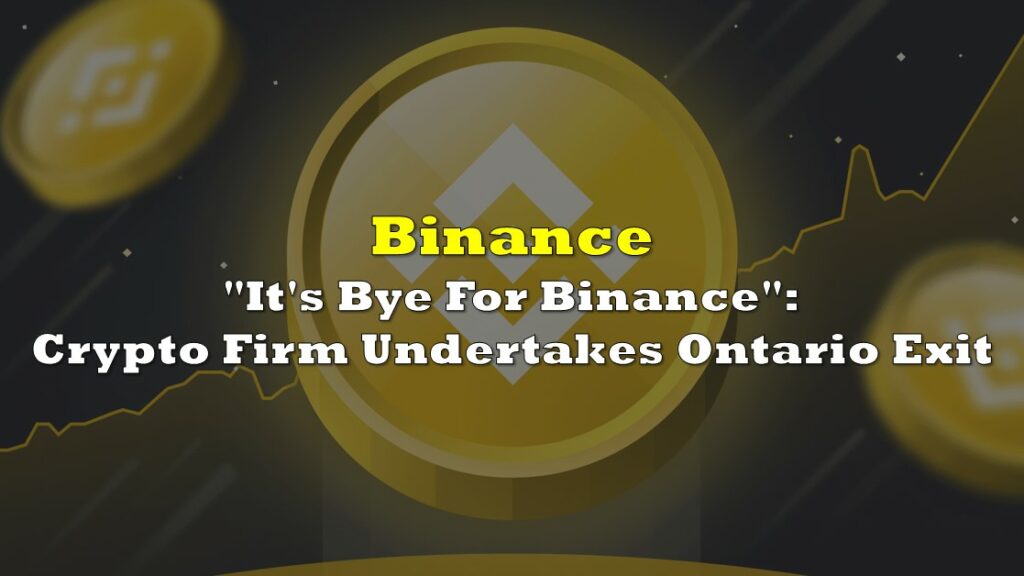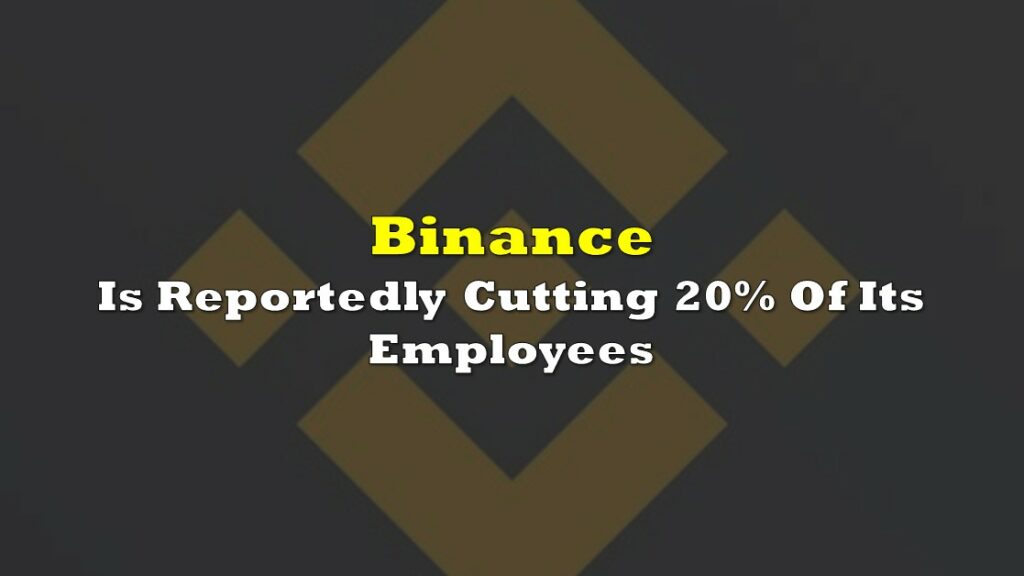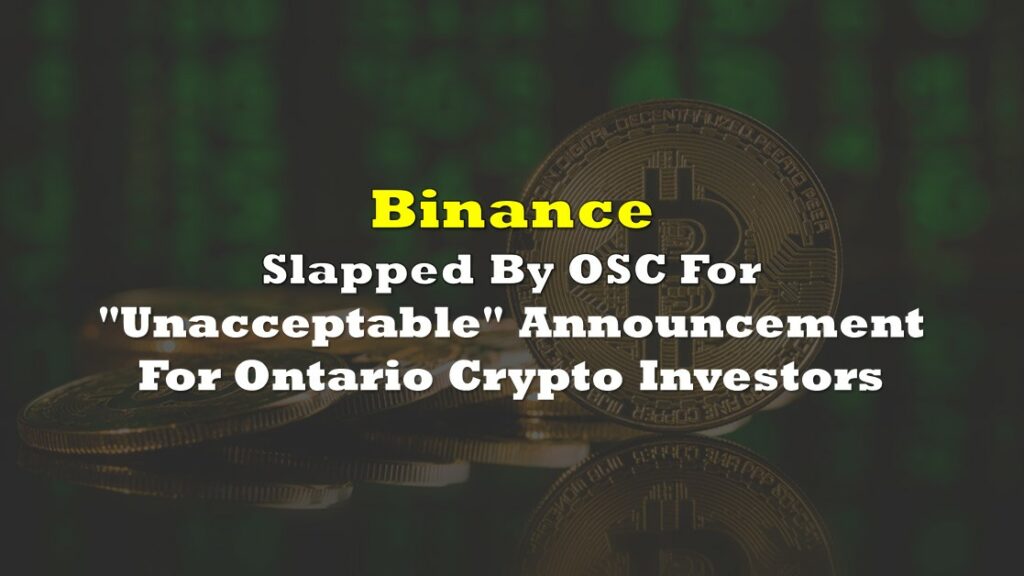The former CFO of the world’s largest crypto exchange reportedly never saw the firm’s books in his three-year stint.
A Reuters report claimed that, despite Binance CEO Changpeng Zhao’s pronouncement of “full transparency,” most of the details about the exchange Binance.com are obscured from the public.
The media firm’s analysis of Binance’s corporate records–which it described as a “black box”–showed that the Binance.com exchange, which has completed trades worth more than $22 trillion this year, is mostly concealed from public view.
Books in a black box
The Reuters team reviewed filings by Binance units in 14 jurisdictions where the exchange on its website says it has “regulatory licenses, registrations, authorisations and approvals.”
In the report, Zhao and other executives were described to have continuously refused to reveal the entity that controls the main exchange. Binance also does not provide fundamental financial data such as revenue, earnings, and cash reserves, according to Reuters.
The corporation has its own cryptocurrency, but it does not specify what role it serves on the balance sheet. It lends money to users in exchange for their crypto assets and allows them to trade on margin with borrowed funds. However, it does not specify the size of such bets, how vulnerable Binance is to that risk, or the full amount of its reserves to finance withdrawals.
Red Flags: @Binance doesn't disclose:
— John Reed Stark (@JohnReedStark) December 19, 2022
-Basic financial info such as revenue/profit/cash reserves;
-The role its coin plays on its balance sheet;
-Its crypto-margin bets;
-Its risk exposure;
-How reserves finance withdrawals/leverage; or
-Where it's based.https://t.co/qipUCwCkXA
Binance is also yet to reveal where Binance.com is based, given that it allows trading in various locations. For instance, six of the 14 local authorities in Spain, New Zealand, Australia, Canada, France and Lithuania told Reuters that their jurisdiction doesn’t include supervising the main crypto exchange.
Reuters also inquired about the local Binance units and affiliates’ relationships with the main Binance exchange. Only one company responded: according to Pierre van Helden, the company’s managing director of South African company FiveWest, his firm receives a “minimal yearly license fee” from Binance to support crypto derivatives trading for Binance’s South African users.
“How Binance operates globally is unclear to us,” van Helden added.
Asset wallets
Recently, the exchange was the subject of a Dirty Bubble Media piece where it was claimed that Binance is freely exchanging assets with Binance.US–which supposedly are independent from one another–in an attempt to skirt American regulatory laws.
“We can now report that based on blockchain transfers, market data, and company disclosures, it appears that there is no meaningful separation between the two firms. In fact, we show that Binance.US both transfers customer deposits to Binance and pays customer withdrawals using transfers back from the offshore exchange’s wallets,” the report said.
The piece cited Twitter user @jconorgrogan who has been monitoring the Binance.US transactions since the platform halted withdrawals of the Tether stablecoin (USDT). During this time, the USDT balance in the primary Binance.US wallet fell to its lowest level ever ($197,000).
Recently, it was observed that withdrawals resumed after Binance.US received a single $10 million USDT transfer from an undisclosed address. Those funds were then transferred from two well-known Binance exchange wallets.
Zhao, however, disputed the claim as merely “FUD”–a shorthand for fear, uncertainty, and doubt.
FUD.
— CZ 🔶 Binance (@cz_binance) December 20, 2022
“Audit”
The exchange recently stated that it dealt with net outflows of almost $6 billion in 72 hours last week “without breaking stride” because its finances are strong and “we take our responsibility as a custodian seriously.”
Analysts attributed Binance’s rise in outflows last week to concerns about how crypto exchanges keep user assets, as well as the Reuters report on the DOJ inquiry. Withdrawals of some crypto tokens were also blocked by the exchange.
Binance’s efforts to reassure investors were hampered on Friday when the auditing firm Mazars, who it engaged to “audit” its reserves, halted all operations for crypto businesses and has seemingly pulled its report on Binance reserves from its website.
READ: Mazars Removed Binance “Audit” Results From Website, Paused Work For Crypto Clients
Binance had tapped Mazars to release a report on the exchange’s BTC reserves, confirming what the firm released earlier that it has a 101% reserve ratio, enough to cover customer balances on the platform.
The auditing firm said that it performed an Agreed-Upon Procedures engagement in accordance with the International Standard on Related Services (ISRS) 4400 (Revised). Under item 6, however, the rules of procedure specified that such engagement is “not an audit, review, or other assurance engagement.” The same disclaimer is also expressed by Mazars in its report.
“This AUP engagement is not an assurance engagement. Accordingly, we do not express an opinion or an assurance conclusion. Had we performed additional procedures, other matters might have come to our attention that would have been reported,” the firm said.
Zhao’s act of obscuring Binance’s financial information matches the stringent culture of secrecy he has enforced throughout his company’s ascent, according to a Reuters article in October.
According to two people who worked with Binance’s previous chief financial officer Wei Zhou, he himself did not have access to the company’s full accounts during his three-year employment.
FUD is a make believe smokescreen.
— Mike Alfred (@mikealfred) December 17, 2022
You have no corporate parent, no CFO, no domicile, no internal controls, no board of directors, no auditor, and no audited financials.
You are the least transparent organization of your size in human history.
That is the truth.
It is noteworthy that in a Twitter space AMA back in November, Zhao said that FTX and its former chief Sam Bankman-Fried is connected to the article on Reuters about Binance accepting transactions in Iran despite US sanctions–which the chief executive has reportedly belied.
Reuters also reported in September that it was recently able to review a December 2020 written request from US Justice Department’s money laundering section that asked Binance to hand over records about its anti-money laundering checks and communications involving Zhao.
Information for this briefing was found via Reuters and the sources provided. The author has no securities or affiliations related to this organization. Not a recommendation to buy or sell. Always do additional research and consult a professional before purchasing a security. The author holds no licenses.









